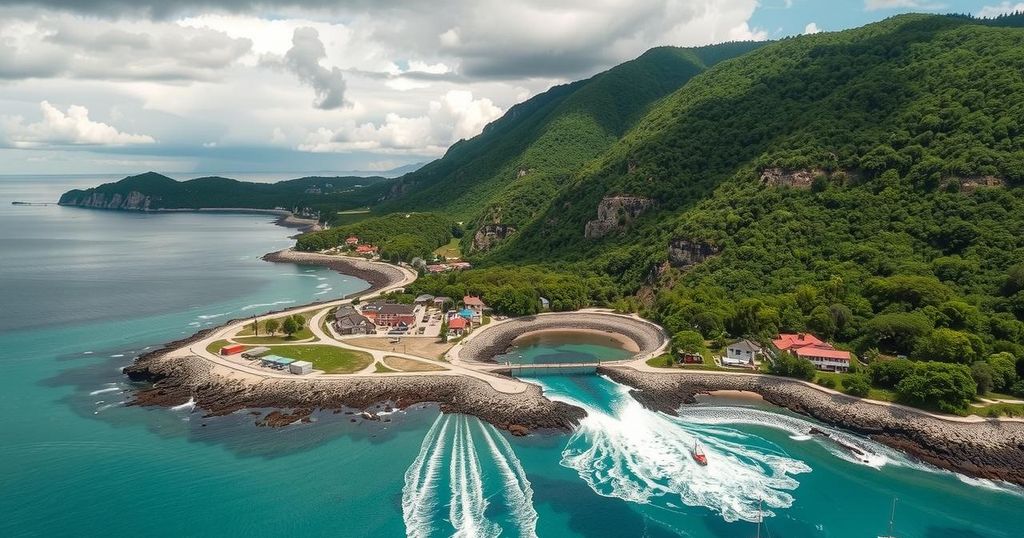The Lobito Corridor project aims to connect Angola, Zambia, and the DRC via railway to facilitate trade and natural resource access. While the project promises job creation, local communities express skepticism, fearing it may lead to increased exploitation of DRC resources. Analysts criticize the project for benefiting foreign powers disproportionately and urge the Congolese government to prioritize local interests in negotiations.
The Lobito Corridor project, supported by the United States, aims to connect Angola, Zambia, and the Democratic Republic of the Congo (DRC) through a 1,300km railway to enhance trade and access to vital natural resources. While officials argue the project will stimulate economic growth and job creation, local populations express concern over its potential to exacerbate resource exploitation by foreign interests. DRC residents, particularly from mining-rich provinces, are divided; some view the Corridor as an opportunity while others fear it will enable modern forms of plunder similar to colonial times.
Despite government assurances of job creation—estimated at around 30,000 positions—local voices highlight ongoing poverty and a lack of infrastructure development. Economic analysts warn that the project could disproportionately favor foreign nations over Congolese citizens. The DRC houses significant cobalt and copper reserves, critical for the global energy transition, but the wealth generated does not benefit the local communities.
In recent discussions involving President Joe Biden, regional leaders emphasized the Corridor’s potential for connectivity and economic integration. However, criticism persists regarding the motivations behind the collaboration, with experts deeming it “neo-colonialist.” Critics argue that local needs should take precedence, advocating for the establishment of a processing industry within the DRC to retain more value from the nation’s resources.
The pervasive sentiment among local activists is that the corridor may end up favoring external stakeholders, such as the United States and Angola, at the expense of the Congolese populace. The history of similar projects raises alarm about the inherent security risks and the potential continuation of an exploitative economic model that has plagued the region for decades. Critics urge the Congolese government to renegotiate terms to ensure fair benefit distribution to the local communities before fully committing to the project, cautioning against a future where DRC resources are extracted without substantial local returns.
The Lobito Corridor is designed to enhance regional trade by connecting Angola’s Port of Lobito to Zambia and the DRC, where substantial mineral deposits are located. The DRC is known for possessing the world’s largest cobalt reserves and significant copper reserves, making the proper management of these resources paramount. The initiative has sparked mixed reactions in the DRC, where local communities possess contrasting perceptions of its potential impact on their economy and preservation against exploitation.
In conclusion, the Lobito Corridor is a significant infrastructural initiative that has the potential to transform trade in southern Africa. However, it raises serious concerns about resource exploitation, local economic impact, and the risk of neo-colonial practices. As the DRC government moves forward with the project, it must prioritize the interests and welfare of its citizens to avoid repeating historical patterns of exploitation that have marginalized local communities. Without strategic planning and local involvement, the corridor could perpetuate existing inequalities rather than foster genuine development.
Original Source: www.aljazeera.com






